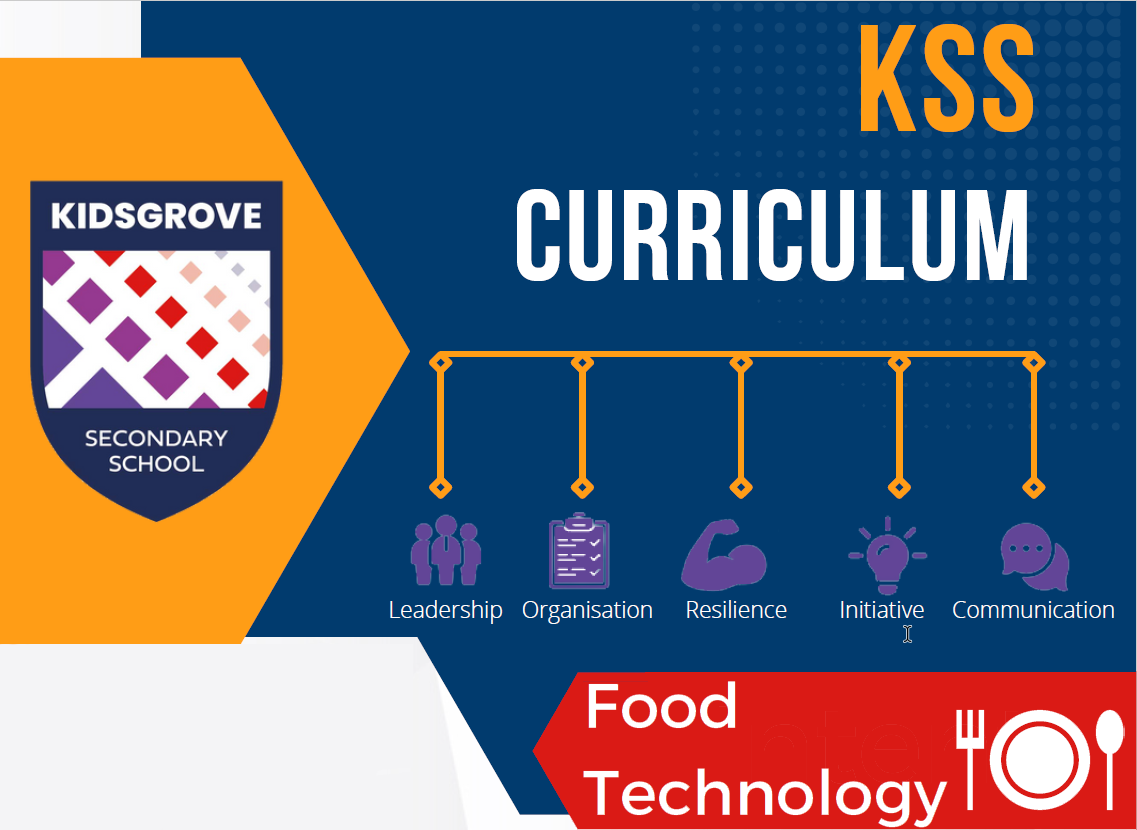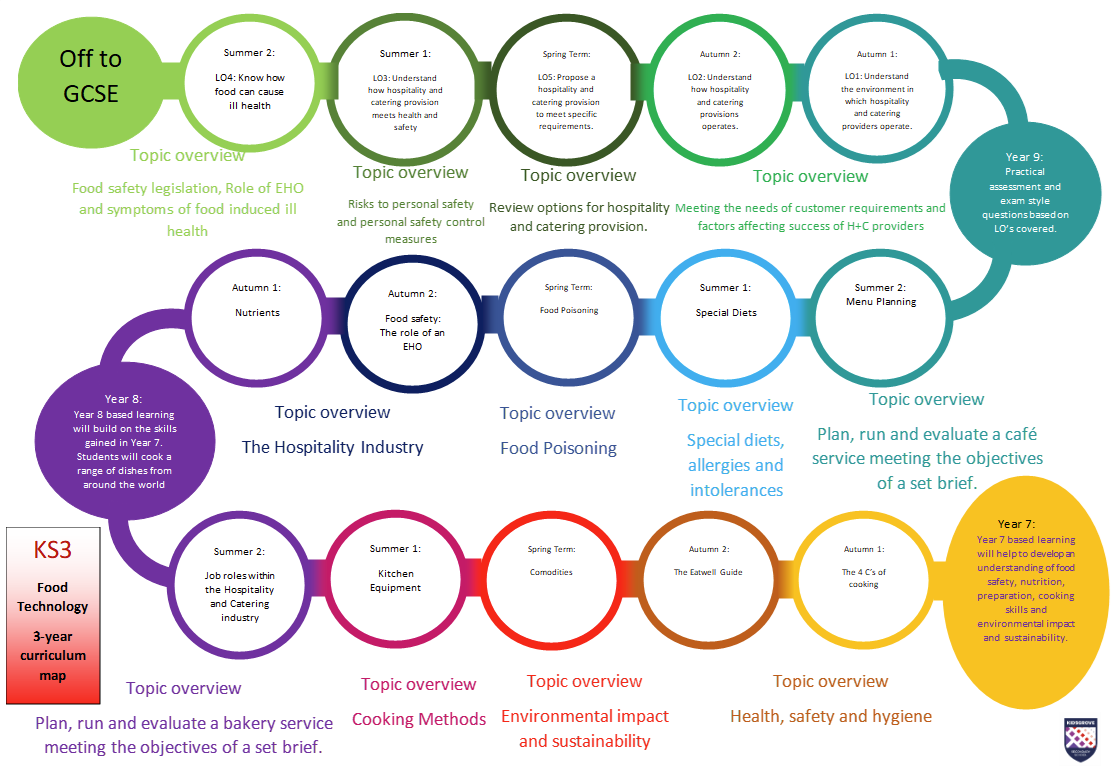
The school’s vision is modelled in the Food Technology curriculum, where we believe in inclusive education for all.
We believe that all of our students deserve a curriculum that meets their differing needs and enables them to fulfil their unique potential.
We want our students to be successful members of the community and to maximise their life opportunities. It is the intention of the curriculum to enable this.

Core Values across the curriculum - Food Technology
Our curriculum intent is:
- Coherently plan, sequence and adapt our curriculum to meet the unique needs of all of our learners.
- Offer breadth of study at KS3 that is sequential in leading to study at GCSE level; all students will be stretched and challenged over 5 years, taking into account different starting points.
- By drawing on other subjects in school such as English, Maths, Science and Geography students can develop effective literacy and numeracy skills through digital technology. This creates learners who are confident and competent readers, writers and speakers, with essential analytical skills needed for life.
- Embed a range of wider enrichment opportunities and experiences, at least one per year, to ensure our learners have an educational experience that is rich and varied.
- Encompass the whole school core values through the Food Technology curriculum.
As a result the Food Technology curriculum will:
- Apply the principles of nutrition and healthy eating, whilst instilling a love of cooking in all pupils.
- Develop digital skills that remove all barriers to learning and promote student independence through a sequential curriculum from KS3 to KS4.
- Instill crucial life skills that enables pupils to feed themselves and others during life and make effective choices in the future.
- Develop knowledge through theoretical content and allow students to experience practical lessons offering them the chance to refine and demonstrate their food preparation and cooking skills.
- Develop knowledge about multicultural foods and enable students to increase their cultural capital by experiencing how different religions and ethical beliefs can impact our everyday food choices.
- Enable students to study Food Preparation and Nutrition to allow students to seek healthier options regarding their own nutrition, or that of others, and understand the environmental impacts of the foods we consume; providing opportunity for students to access further opportunities in the catering industry.
- Ensure students are challenged and stretched by developing their leadership, organisation, resilience, initiative and communication skills in order to provide foundations for every aspect of school life.
Curriculum implementation
The curriculum maps demonstrate the implementation the curriculum in each subject area.
The curriculum maps show KS3 (Years 7, 8 and 9) and KS4 (Years 10 and 11).
KS3 Curriculum Content

KS4 Curriculum Content
